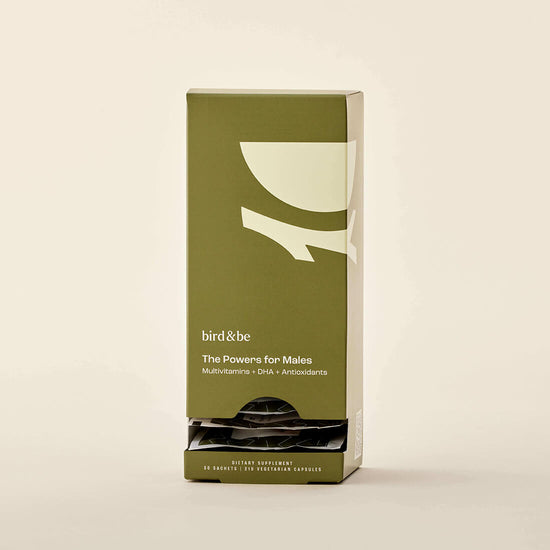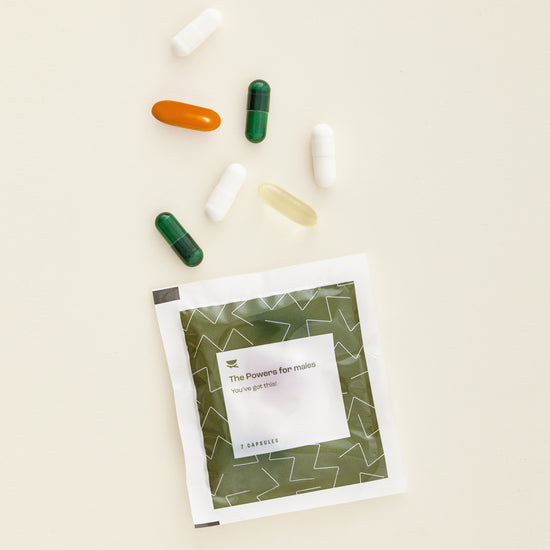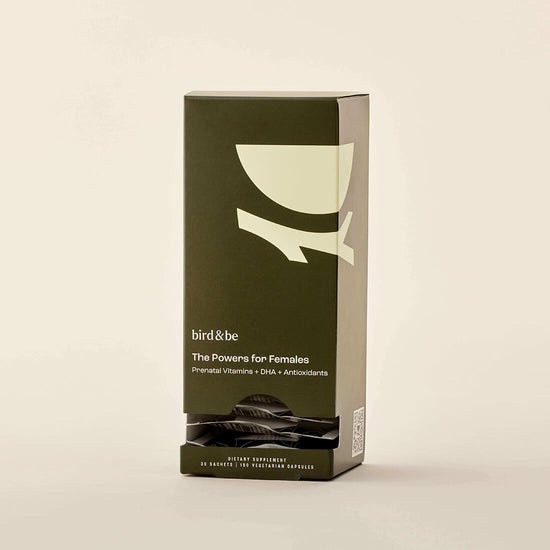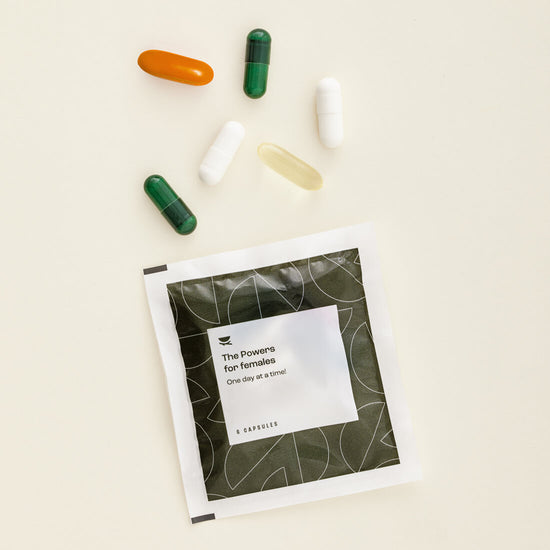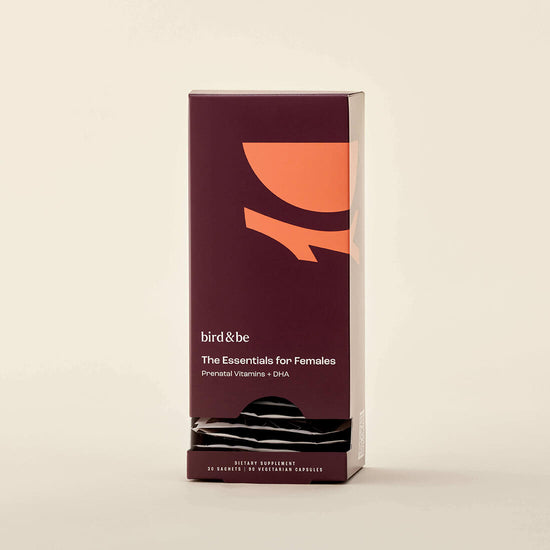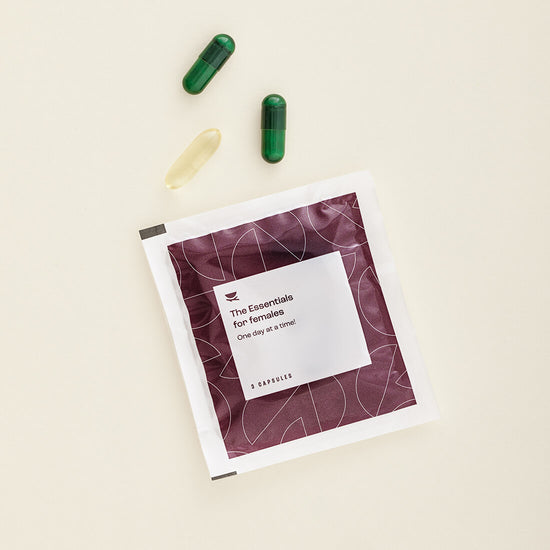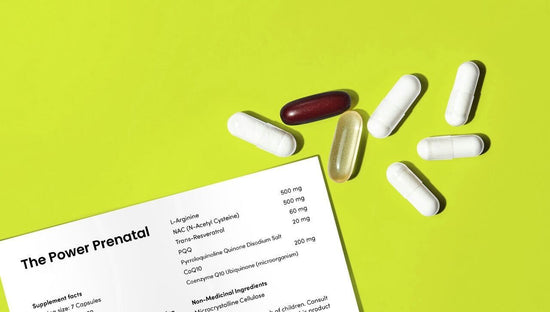Here’s how we’re changing fertility care
Supplements offer important minerals, vitamins and essential amino acids that support overall health while also helping optimize reproductive health—but not all are created equal.
When it comes to critical nutrients, the type, form and dose is key to getting it right. Too much can be toxic (especially for fat-soluble vitamins), too little can cause deficiencies and both can lead to health issues. Some vitamins are so critical for a healthy pregnancy that there are public-health programs to ensure people with eggs are getting enough (for example, there are food-fortification programs and government-funded campaigns centred around folic acid’s role in preventing neural tube defects).
What’s less widely known is that supplements can also improve egg and sperm quality, and support embryo development and placental health. The science behind supplements is solid and continuously growing—and we love to dig deep into the studies. In fact, all of our prenatal ingredients are supported by published studies. Here’s how else we do things differently:
1. Our formulas are developed by fertility specialists.
Bird&Be’s supplements were developed by the co-founders of Conceive Health, Dr. Tracy Malone and Dr. Jennifer Fitzgerald, who both previously worked on formulas for other vitamin brands. They leaned on published peer-reviewed studies and their clinical expertise to select each ingredient type, form and dose.
From there, our formulas were validated by our chief medical advisor Dr. Dan Nayot, a panel of OBGYNs and REIs (A.K.A fertility doctors), and two compounding pharmacists—that’s a lot of thumbs up.
2. We’re all about personalized solutions.
To get you exactly what you need for where you’re at in your journey, our supplements start with base formulas that cover off all the key ingredients. Then, you can layer on “boosters” to further tailor your mix. Think: extra antioxidants, PCOS and endometriosis care, calcium for pregnancy, lactation support and more.
Need help finding what’s right for you? Our easy quiz takes all the factors into consideration.
A Handy Glossary for Fertility Supplements →
3. Our nutrients come in bioavailable forms.
We all use nutrients a little differently depending on our genetics and lifestyle habits, and some people can have a harder time converting nutrients into forms that the body can absorb. So instead of taking chances with forms of vitamins that our bodies need to convert, we've cut to the chase and included active forms. These ready-to-use nutrients can just “walk in” to your cells and get to work right away. Here are a few examples from our formulas:
Vitamin A vs. Beta-Carotene
Vitamin A is crucial for the maturation of follicles (the little sacs in the ovary that contain eggs) as well as the development of sperm cells and embryos—all major functions when you’re trying to conceive. Also, a recent review highlighted the role Vitamin A plays in reducing a pregnant person’s risk of night blindness, clinical infection and anemia.
Most prenatals include a Vitamin-A precursor called Beta-Carotene, which is a form your body has to convert into usable Vitamin A. For a sure bet, we use preformed Vitamin A that can get right down to business.
Folate vs. Folic Acid vs. 5-MTHF (A.KA. 5-Methyltetrahydrofolate, Methylfolate, L-Methylfolate, L-5-MTHF)
You’ve probably heard about the importance of folate to support fetal neural tube development. It’s a biggie, and because the neural tube starts forming early on in pregnancy, it’s recommended that you start supplementing a few months before you start trying so that there’s enough time to get your blood folate concentration up.
Folate (A.K.A. Vitamin B9) comes in a few different forms. You’ll often see Folic Acid in supplements or fortified foods like bread and cereal. Folic Acid needs to be processed by the body into a usable form, and it’s our MTHFR gene that takes care of that with an enzyme it produces. However, a large percentage of the population has MTHFR gene variants, some of which make processing Folic Acid less efficient. To cover all your bases, our supplements include both Folic Acid and L-5-methyl-tetrahydrofolate (5-MTHF), which is the active form of folate that’s ready for your body to use. In studies measuring blood folate levels, 5-MTHF has shown to convert to a higher folate concentration in plasma than other forms, so you can be confident you're getting enough of the good stuff.
Ferrous Fumarate/Ferric Iron/Iron Chelate vs. Ferrous Bisglycinate Chelate
It’s common to find higher doses of cheaper, less bioavailable forms of iron in prenatals (these include Ferrous Fumarate, Ferric Iron and Iron Chelate). And unfortunately, that’s what gives iron a bad rep for constipation and nausea. To save your stomach and boost the benefits, we pack our prenatals with the gentler and more bioavailable form of Iron called Ferrous Bisglycinate Chelate. Just make sure to take your vitamins on a full stomach after a meal for best absorption and to avoid any queasiness.
See How Bird&Be Stacks Up Against Our Competitors →
4. We include what others don’t.
We like to go above and beyond the basics, because there are several not-so-common nutrients that have been proven to play important roles in supporting you at every stage of your fertility journey. Here are a couple that you won’t find in many other prenatals but we simply couldn’t skip:
DHA (Omega-3)
This fatty acid is necessary for fetal brain, eye and nervous system development, and also decreases the risk of preterm birth (and increases infant birth weight).It also decreases the occurrence and severity of postpartum depression in new mothers. What’s more: It improves sperm parameters, too. So yea, DHA is kind of a big deal.
Oily fish are a rich source of DHA, but we use a vegan form of DHA sourced directly from algae—what the fish eat to get their DHA, anyway. That way, there’s no fishy aftertaste and it’s farmed in a more sustainable way.
Choline
Choline is an essential micronutrient that helps the body break down and process fats. Why does that matter for fertility? Because our cells use fat as fuel, and eggs and sperm need a lot of fuel.
In pregnancy, it reduces the risk of neural tube defects (it’s an important companion to Folate!) and helps the placenta develop.
A lot of prenatals skip or skimp on it—but we don’t. Our prenatals for sperm contain 100 mg of Choline and our prenatals for eggs have 150 mg (a little extra because Choline demands are at their highest in pregnancy and lactation).
Learn More About Choline →
5. We make dosing simple.
Knowing how much of each nutrient to take can be confusing—it depends on your age, how long you’ve been trying to conceive, whether you have any underlying issues such as PCOS or endometriosis, and of course whether you need support for eggs or sperm. We've done the research and distilled it into a simple quiz that will match you up with your perfect formula. No more iffy advice in forums or Facebook groups.
6. We keep convenience in mind.
We know you’ve got a lot on the go, so we pack your full daily dose into convenient once-a-day sachets. Not only does this help you stay on top of your supplements, but it also frees up cupboard space, cuts the plastic-bottle waste and saves you the cost of buying each supplement separately.
7. We’re here for people with eggs *and* people with sperm.
Embryos get half their DNA from eggs and the other half from sperm—but the sperm side of the equation is often overlooked in preconception care. Recent research has found that sperm quality declines with age and has explored the impact that can have on pregnancy (such as an increased risk of genetic mutations and autism). The good news is that we know sperm quality can be improved with the right nutrients—even DNA fragmentation can be reduced by popping antioxidants.
You might also notice that we label our products “for males” and “for females.” These terms refer to biological sex—chromosomes, anatomy and sex characteristics assigned at birth. Not everyone identifies their gender (ie. woman, man, non-binary, agender, gender-expansive) with their biology, and we hope to provide a welcoming and supportive experience for every person at every step of the journey. If your sex does not match our products (intersex or DSD), please send us an email and we can help you choose the right product for you.

